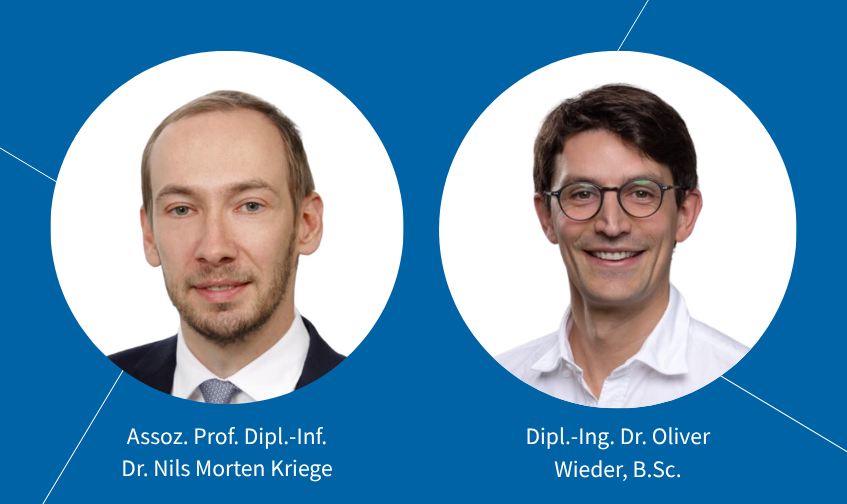Insights into the new Certificate Program "Deep Learning for Industrial AI"

Insights into the new Certificate Program "Deep Learning for Industrial AI"
Interview with the Academic Director and Coordinator
Starting this fall, in October 2025, we will launch a new, state-of-the-art continuing education program in the field of AI. Designed to bridge cutting-edge theoretical foundations with real-world application, the one-semester certificate program aims to equip professionals with the skills and strategic insights needed to harness AI responsibly and effectively. To learn more about the program’s vision, structure, and benefits, we spoke with the scientific leadership team: Prof. Nils Morten Kriege, the academic director, and Oliver Wieder, PhD, the academic coordinator, in a brief written interview.
Who is the program designed for? (Who is the target audience for the program?
NK: The use of artificial intelligence in industry requires expertise in both the application domain and AI methods. In recent years, the development of AI technologies has accelerated rapidly. This course is designed for professionals who already possess relevant domain knowledge and wish to expand and update their skill set in recent AI methods and their applications.
OW: We will focus in particular on deep learning and LLM technologies. The target audience of our course includes practicing data scientists seeking to expand their skills, software developers with Python knowledge wanting to specialize in AI, application developers, IT architects integrating AI systems into existing infrastructure, and technical product managers responsible for AI-based products. The common thread is a desire to apply cutting-edge AI techniques in practical, industrial contexts while building on existing technical foundations.
In your view, what makes this program particularly attractive and stand out as a compelling opportunity?
NK: What truly distinguishes our program is its holistic approach—from mathematical foundations to practical implementation and legal considerations.
OW: We're offering state-of-the-art content focused on the most current technologies like AI agents and RAG systems, with a strong emphasis on practical application through our capstone projects.
What kind of learning experience can participants expect – both in terms of content and instructional approach?
OW: Participants will experience a carefully balanced blend of theory and practice. Our instructional approach centers on interactive online sessions with one culminating in-person presentation day. We provide foundational materials in advance so everyone starts with a common understanding. The learning journey combines lectures with interactive elements, hands-on exercises, and collaborative problem-solving. Participants work on real-world projects—often from their own professional contexts—culminating in a final presentation.
NK: I am particularly looking forward to hearing and discussing the participants' ideas for possible projects from different areas of application.
What concrete benefits can participants take away from the program for their professional practice?
OW: The concrete benefits are substantial and immediately applicable. Participants gain hands-on experience with the latest deep learning approaches and applications like RAG systems and agent-based systems. Through their capstone projects, they apply these technologies to real-world challenges—often from their own work environments—with expert guidance. The knowledge and skills acquired can be immediately transferred to their professional contexts, helping them lead AI initiatives, evaluate solutions, and implement cutting-edge approaches. Professionally, this specialized knowledge opens doors to roles such as AI engineers specializing in LLMs, RAG specialists, AI architects, project leaders, and technical consultants.
Could you tell us a bit about your own academic and professional journey, and what motivates your work in this field?
NK: At the beginning of my doctorate at TU Dortmund University, I was primarily interested in algorithmic problems, and then increasingly started to focus on AI and Machine Learning. After receiving my PhD in 2015, I stayed as a visiting researcher at the University of York and held an interim professorship at the TU Dortmund University. In 2019, I was awarded a WWTF Vienna Research Group for a project on computational drug discovery and joined the University of Vienna. I have always been excited by developing methods and new techniques that are both theoretically founded and capable of solving concrete problems in real applications in the best possible way.
OW: I've been working in the field of deep learning for over 8 years now, and what initially drew me to this area—and continues to motivate me—is how rapidly it evolves. There's always something new to learn, which keeps the work exciting and challenging.

